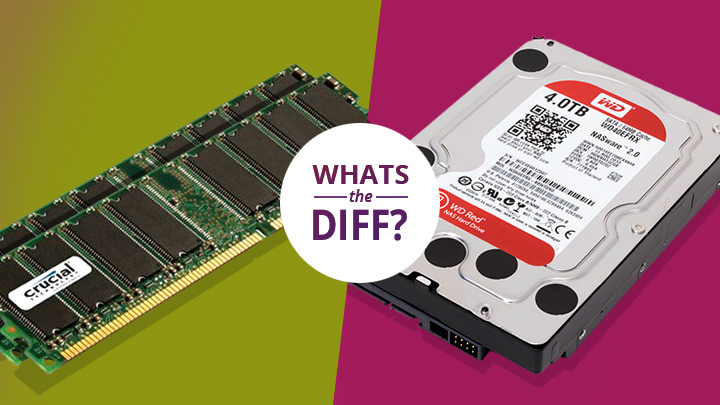
In the old days, we didnt have a choice – EVERY PC or Mac came with the same basic type of permanent storage for our files and data a “hard drive”. The name hard drive was coined to differentiate it from so called “floppy drives” which were permanent storage, but lower in capacity and had to be swapped in and out.
So called “Solid State Drives” or SSD’s have been around for a long time, but only in the last 3-4 years have they become practical to the every day user. As you can see from the chart below, there are some very significant advantages to having a SSD in your PC or Mac – speed, power efficiency, durability to name just a few. So why do most new systems still ship with “hard drives”? It’s simple – cost. In today’s commoditized world, cost is king amonst the major sellers of PC’s. I say sellers because they are NOT manufacturers. Dell doesnt manufacture its systems, it assembles them. It’s not just Dell, all the major brands do this including Apple.
So, back to cost – if you want a system to be advertised at a major retailer like Best Buy you want low cost to attract buyers – $399, $499, not $799 or higher, right? Most people have a hard time differentiating the models and features, so when in doubt go low is the message. I am not here to say you should pay more just for the sake of paying more, but I would say that old cliche about you get what you pay for is still alive and well in this case.
Why do OUR clients get systems from us that almost always (98% of the time) that include a solid state drive? That’s simple – we explain the BENEFITS of such an upgrade and they get the VALUE of that. Who doesnt want a boot or start time of a few seconds from the time you push that power button to the time you can actually click or do something? Who doesnt want a laptop that is eerily quiet because the fan rarely has to run because no heat needs to be dissipated? Who doesnt want instant performance when they click on a link in their web browser?
I certainly want all these things, dont you?
Next time you are thinking its time to replace your PC or Mac with something new, think SSD! We are here to help guide you on what system and features are important for you, and only you. Not only will we help select the right system with the right features for you, but we also will set it all up and move everything over from your old system to the new one!
A Comparison of HDDs to SSDs
| HDD | SSD | |
| Power Draw/Battery Life | More power draw, averages 6–7 watts and therefore uses more battery | Less power draw, averages 2–3 watts, resulting in 30+ minute battery boost |
| Cost | Only around $0.03 per gigabyte, very cheap (buying a 4TB model) | Expensive, roughly $0.20- $0.30 per gigabyte (based on buying a 1TB drive) |
| Capacity | Typically around 500GB and 2TB maximum for notebook size drives; 10TB max for desktops | Typically not larger than 1TB for notebook size drives; 4TB for desktops |
| Operating System Boot Time | Around 30-40 seconds average bootup time | Around 8-13 seconds average bootup time |
| Noise | Audible clicks and spinning platters can be heard | There are no moving parts, hence no sound |
| Vibration | The spinning of the platters can sometimes result in vibration | No vibration as there are no moving parts |
| Heat Produced | HDD doesn’t produce much heat, but it will have a measurable amount more heat than an SSD due to moving parts and higher power draw | Lower power draw and no moving parts so little heat is produced |
| Failure Rate | Mean time between failure rate of 1.5 million hours | Mean time between failure rate of 2.0 million hours |
| File Copy / Write Speed | The range can be anywhere from 50–120MB/s | Generally above 200 MB/s and up to 550 MB/s for cutting edge drives |
| Encryption | Full Disk Encryption (FDE) Supported on some models | Full Disk Encryption (FDE) Supported on some models |
| File Opening Speed | Slower than SSD | Up to 30% faster than HDD |
| Affected by Magnetism | Magnets can erase data | An SSD is safe from any effects of magnetism |
| Ruggedness | Vulnerable to physical jolts and movement | Not vulnerable to jolts and vibration |

Comments are closed.